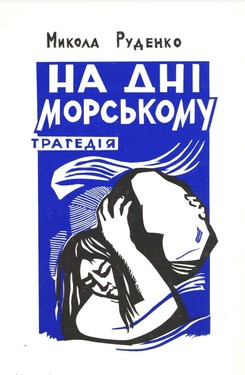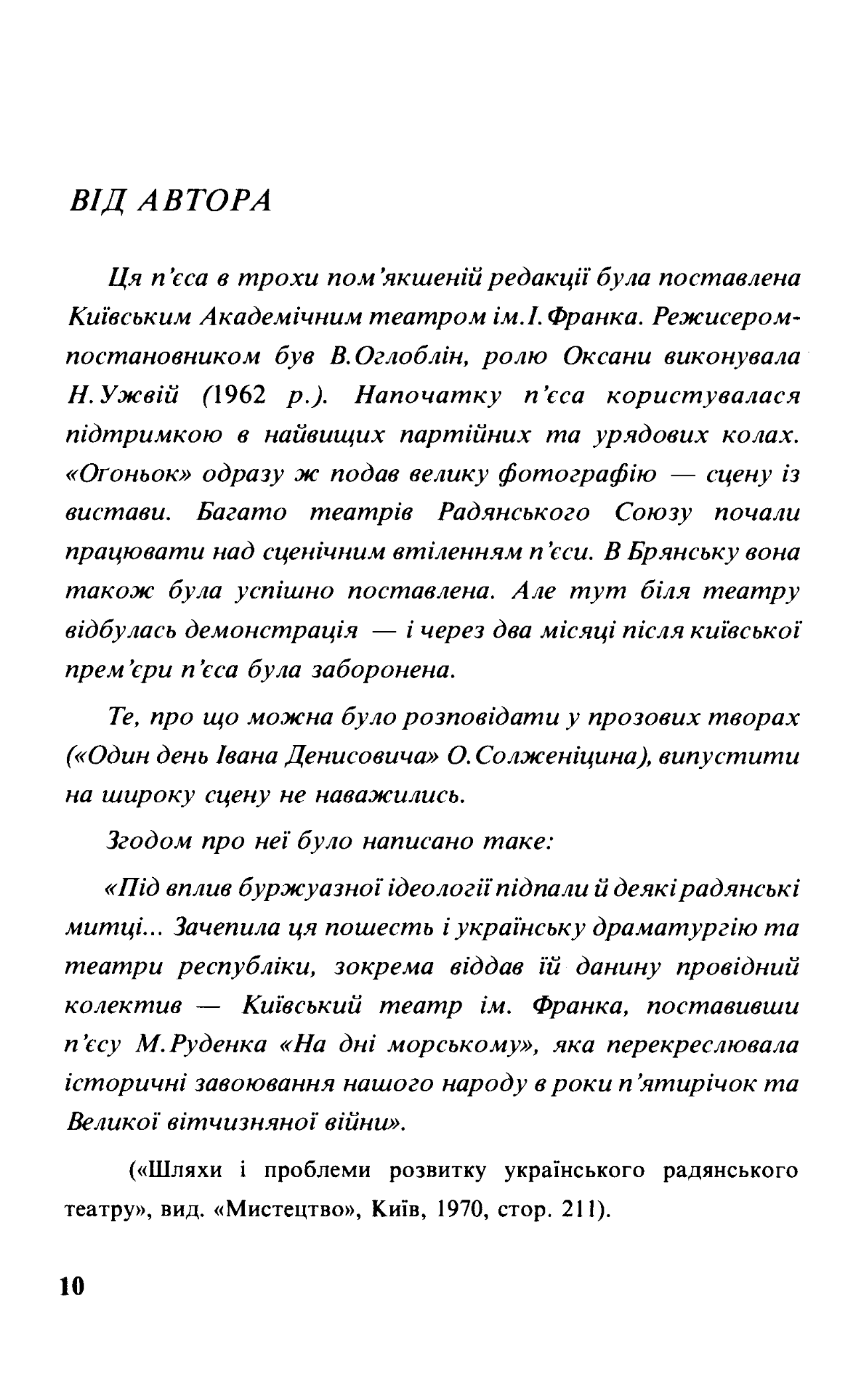FROM THE AUTHOR

Ця п’єса в трохи пом’якшеній редакції була поставлена Київським Академічним театром ім. І. Франка. Режисером-постановником був В. Оголоблін, роль Оксани виконувала Н. Ужвій (1962 р.). Спочатку п’єса користувалася підтримкою в найвищих партійних та урядових колах. «Огонёк» одразу ж подав велику фотографію — сцену із вистави. Багато театрів Радянського Союзу почали працювати над сценічним втіленням п’єси. В Брянську вона також була успішно поставлена. Але тут біля театру відбулась демонстрація — і через два місяці після київської прем’єри п’єса була заборонена. Те, про що можна було розповідати у прозових творах («Один день Івана Денисовича» О. Солженіцина), випустити на широку сцену не наважились. Згодом про неї було написано таке: “Під вплив буржуазної ідеології підпали й деякі радянські митці… Зачепила ця пошесть і українську драматургію та театри республіки, зокрема віддав їй данину провідний колектив — Київський театр ім. Франка, поставивши п’єсу М. Руденка «На дні морському», яка перекреслювала історичні завоювання нашого народу в роки п’ятирічок та Великої Вітчизняної війни.” («Шляхи і проблеми розвитку українського радянського театру», вид. «Мистецтво», Київ, 1970, стор. 211.)
This play, in a slightly softened version, was staged by the Kyiv Academic Theater named after I. Franko. The director was V. Ogloblin, and the role of Oksana was performed by N. Uzhviy (1962). Initially, the play enjoyed support in the highest party and government circles. The magazine Ogonyok immediately published a large photograph of a scene from the performance. Many theaters across the Soviet Union began working on stage adaptations of the play. It was also successfully staged in Bryansk. However, a demonstration took place near the theater there—and two months after the Kyiv premiere, the play was banned. What could be openly discussed in prose works (such as One Day in the Life of Ivan Denisovich by A. Solzhenitsyn) was not allowed to be presented on a wide theatrical stage. Later, the following was written about the play: “Under the influence of bourgeois ideology, some Soviet artists have faltered… This plague has also affected Ukrainian dramaturgy and theaters of the republic. In particular, it has even reached the leading collective—the Kyiv Theater named after Franko, which staged M. Rudenko’s play At the Bottom of the Sea, a work that negates the historical achievements of our people during the years of five-year plans and the Great Patriotic War.” (“Paths and Problems of the Development of Ukrainian Soviet Theater,” published by “Mystetstvo,” Kyiv, 1970, p. 211.)

